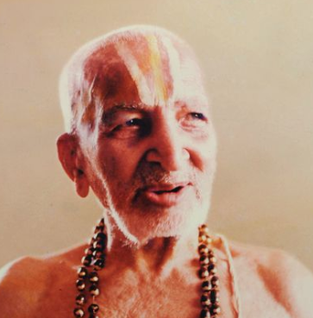A Quote by G. I. Gurdjieff
We must strive for freedom if we strive for self-knowledge. The task of self-knowledge and of further self-development is of such importance and seriousness, it demands such intensity of effort, that to attempt it any old way and amongst other things is impossible. The person who undertakes this task must put it first in his life, which is not so long that he can afford to squander it on trifles.
Related Quotes
First, my people must be taught the knowledge of self. Then and only then will they be able to under-stand others and that which surrounds them. Anyone who does not have a knowledge of self is considered a victim of either amnesia or unconsciousness and is not very competent. The lack of knowledge of self is a prevailing condition among my people here in America. Gaining the knowledge of self makes us unite into a great unity. Knowledge of self makes you take on the great virtue of learning.
Self-knowledge is not the knowledge of a dead self, self-knowledge is the knowledge of the process of the self. It is an alive phenomenon. The self is not a thing, it is an event, it is a process. Never think in terms of things, the self is not there inside you just like a thing waiting in your room. The self is a process: changing, moving, arriving at new altitudes, moving into new planes, going deeper into new depths. Each moment much work is going on and the only way to encounter this self is to encounter it in relationship.
I think seriousness is a mask of self-importance and self-importance in turn is a mask for self-pity. So if you're really going to pursue a spiritual way of living in the world, you must be lighthearted and carefree, have humor, be able to tolerate ambiguity and embrace uncertainty, and be forgiving of yourself and everybody else.
Many of those whose task it is to broker the truth of God to the people of God in the churches have now redefined the pastoral task such that theology has become an embarrassing encumbrance or a matter of which they have little knowledge; and many in the Church have now turned in upon themselves and substituted for the knowledge of God a search for the knowledge of self.
Therefore the Sage embraces Unity, and is a model for all under Heaven. He is free from self-display, therefore he shines forth; from self-assertion, therefore he is distinguished; from self-glorification, therefore he has merit; from self-exaltation, therefore he rises superior to all. Inasmuch as he does not strive, there is no one in the world who can strive with him.
Philosophy arises from an unusually obstinate attempt to arrive at real knowledge. What passes for knowledge in ordinary life suffers from three defects: it is cocksure, vague and self-contradictory. The first step towards philosophy consists in becoming aware of these defects, not in order to rest content with a lazy scepticism, but in order to substitute an amended kind of knowledge which shall be tentative, precise and self-consistent.
There must be only three supreme values which govern a person's life: Reason, Purpose, and Self-esteem. Reason, as his only tool of knowledge--Purpose, as his choice of the happiness which that tool must proceed to achieve--Self-esteem, as his inviolate certainty that his mind is competent to think and his person is worthy of happiness, which means: is worthy of living. These three values imply and require all of man's virtues, and all his virtues pertain to the relation of existence and consciousness: rationality, independence, integrity, honesty, justice, productiveness, pride.
Man must have results, real results, in his inner and outer life. I do not mean the results which modern people strive after in their attempts at self-development. These are not results, but only rearrangements of psychic material, a process the Buddhists call 'samsara' and which our Holy Bible calls 'dust'.
The basis of self-ownership is the fact that each person has direct control over the scarce resource of his body and therefore has a better claim to it than any third party (and any third party seeking to dispute my self-ownership must presuppose the principle of self-ownership in the first place since he is acting as a self-owner).





































